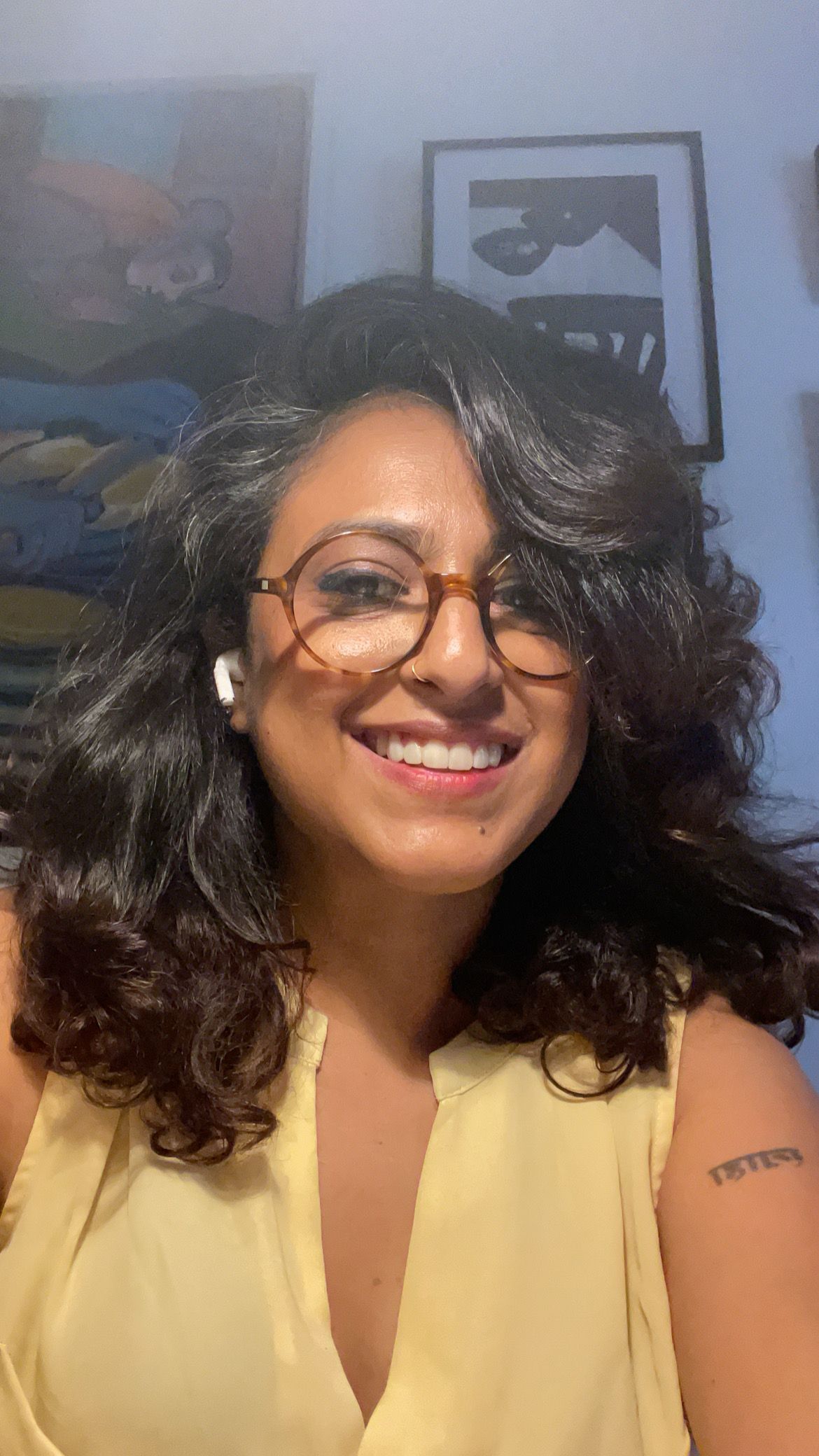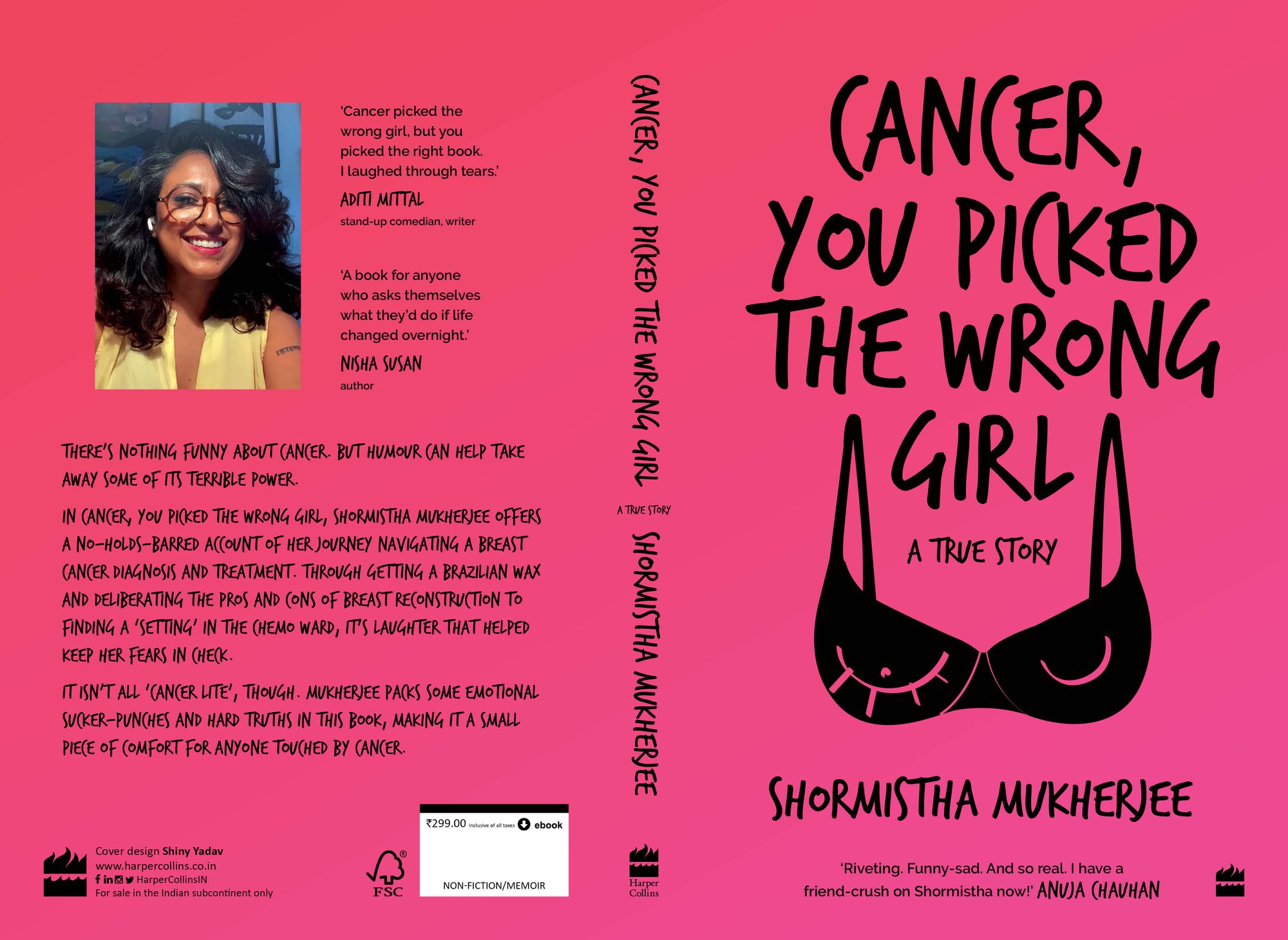Sormishta Mukherjee documented her experience with cancer with raw honesty, relatability and sheer courage. She is the author of the book Cancer, you picked the wrong girl! Through her book, she talks about her journey to create a safe space for other cancer survivors and create an environment where they feel like they belong. Sormishta’s courage is commendable as she sits down with us and talks about her diagnosis, the stereotypes she wants to shatter and the awareness she wants to create about gynaecological cancer.
After reading her book, I could not help but ponder about her journey with cancer. Her zeal and unwavering courage made me feel strong. I sat down with Sormishta as she talked about her diagnosis, journey and the disease with an unnatural sense of gratitude for the learnings the experience gave her.
1. What were the first few thoughts in your mind when the news was broken to you?
The first doctor who did my sono-mammography was the first one to tell me about it. I was sitting in front of her while my husband was waiting outside, I was asked to call him in. And she told us that it wasn’t looking too great! And the first thing is always disbelief because all you are thinking, I had just come for a test and how is this me? It is such an out of body experience. Because how can you believe it suddenly that someone is telling you the lump that you have in your body is not benign and you are just beginning to wrap your head around the fact that you might have cancer and it is literally the last thing you want it to be.
It is a very strange feeling because it all is happening at once. It basically feels like you’re going through this tunnel and all you can feel is disbelief because your whole body is going through shock. It had never even crossed my mind that I would be diagnosed with cancer. I remember the time I used to be so consumed with my work and I was drained and there was a tiny voice in my head telling me that this is going to change my life as it can completely turn my life around but I had to ask that voice to shut up and let myself come to terms with what had just happened.
2. You have portrayed the whole scenario with a lot of bravery, relatability and a whole lot of raw honesty- but how was it through the diagnosis period? Were you just as terrified, intimidated, lost and in denial?
Through the diagnosis, every day is a different feeling because you don’t even know how it’s going to be! Because one fine day, you go to the doctor, you find out you have cancer. In the next two days, the doctor tells you that you have to remove your breast and that you may have to undergo chemotherapy. And all you are thinking about is how can my life just turn upside down in 3 days? You have to go through new things every day and you are learning new terms like a biopsy, PET scans, mastectomy and whatnot. And every day is a brand new thing that you have to face. You are thrown into this pool that you know nothing about. It is absolute bewilderment.
All I tried to do was, I tried accepting it very fast. But still, I was in denial for most of it- because all I was thinking about is how bad can it be? And it is all too fast that you have no time before you know it- you have surgery the next day. But I told myself one thing, I will never ask myself, WHY ME? Because there is no answer to it. I have to get through these tribulations and find my way through it. Cancer treatment is like you are put into a new school, all this while you are in one school being taught one thing and then all of a sudden you are transferred to another school where you are learning new terminologies that you have never heard every single day.

3. Were people around you in denial?
I was in denial about the fact that it was serious. My mind never even went to chemotherapy, I was just assuming I would undergo one odd surgery and I thought I would find my way out of it. But my husband accepted it very quickly, he tells me that he always knew it was going to be a long haul. And he tells me that seeing me be so hopeful was heartbreaking for him because he knew it wasn’t going to be so easy. He was not in any form of denial, I was quite a bit.
Everyone has a different reaction and a different way of dealing with it. In fact, today a friend of mine that I was travelling with told me that when he found out about my illness he couldn’t bear to talk to me for 9 months and he actually didn’t. Because all he could think of was that I was going to die and he would be heartbroken. Everyone deals with it differently but nothing else matters except the fact that I have to hold my head up and make my way through it.
4. How did your family react to the news? How was it for you to break the news to them?
My really close friends knew, they were accompanying me. I definitely had to break the news to them. But how do you expect me to just call people up and tell them, ‘Hey, I have Cancer! Ridiculous, right?’ it’s not a wedding right, how do you just go and tell even if you want people to know. My really close friends and colleagues and some other people, I really had to tell, it was inevitable. Another friend of mine who also battled cancer, I spoke to him and spoke to him about how he dealt with it.
I started writing about it from the first day I started going to the hospital. Writing for me was therapy, it helped me accept. In the beginning, when I was diagnosed I knew it wasn’t my fault and I cannot repress it. I was quite open about it but sometimes it was tough because people would call me up talking about how bad they were feeling and all I had to say was that I am feeling much worse but it’s okay it’s their way of coming to terms with it.
5. Most women in our country are unaware of the symptoms because of a lack of awareness and education about the same? What led you to take the test?
I took the test because I have had lumps since I was nineteen years old and I have had these benign lumps. And this time, I ignored it for a good 4-5 months. And another thing that is a problem in our country is that there is no standard protocol for gynaecologists to follow. For instance, I had gone and visited a gynecologist for a lump. She asked me to get a sonogram but I should have gone for a mammogram, I am over 40. If I was asked to do a sono-mammogram back then, my cancer could have been detected at stage 0. Again, because there is no standard protocol for it. And there should be so that people can be more aware and get it checked in time. And the awareness is so low even amongst educated urban women, it is shocking.
I am an educated, urban working woman- what awareness did I have? My grandmother had ovarian cancer and I didn’t even know that gynaecological cancers are related. Because I never thought there would be a link. The awareness is again so low because it is a woman’s cancer, there is still so much taboo- it is horrifying. And another thing is that there is no pain so women end up going for a check-up really late and ultimately getting detected very late. A standard protocol should be followed where scans, checkups should be done. There should be workshops and above everything, there should be a conversation about it.
Follow @missmalinilifestyle on Instagram for more content like this and download the Girl Tribe by MissMalini App to join our Girl Bosses community.

